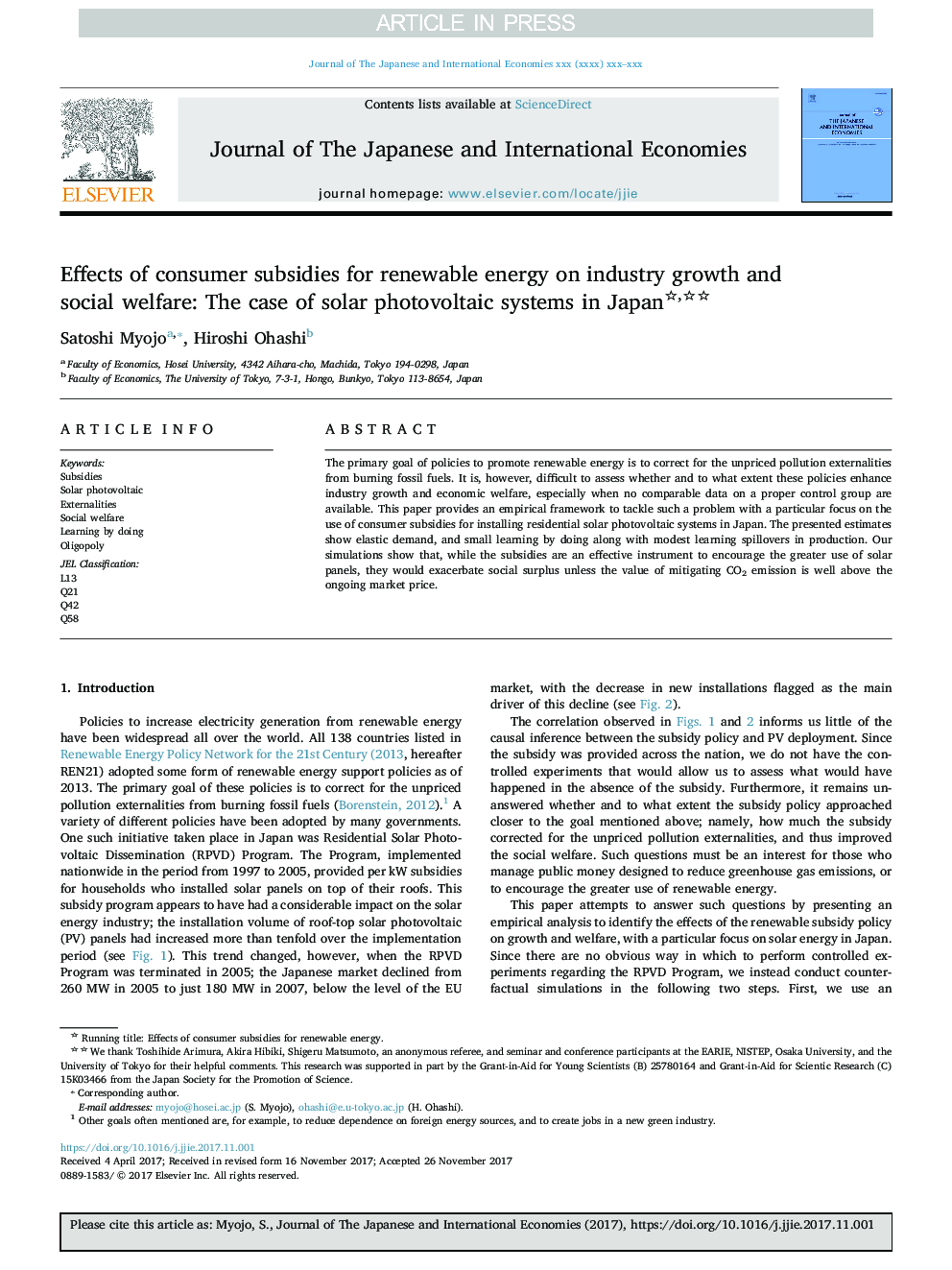| Article ID | Journal | Published Year | Pages | File Type |
|---|---|---|---|---|
| 7366244 | Journal of the Japanese and International Economies | 2018 | 13 Pages |
Abstract
The primary goal of policies to promote renewable energy is to correct for the unpriced pollution externalities from burning fossil fuels. It is, however, difficult to assess whether and to what extent these policies enhance industry growth and economic welfare, especially when no comparable data on a proper control group are available. This paper provides an empirical framework to tackle such a problem with a particular focus on the use of consumer subsidies for installing residential solar photovoltaic systems in Japan. The presented estimates show elastic demand, and small learning by doing along with modest learning spillovers in production. Our simulations show that, while the subsidies are an effective instrument to encourage the greater use of solar panels, they would exacerbate social surplus unless the value of mitigating CO2 emission is well above the ongoing market price.
Keywords
Related Topics
Social Sciences and Humanities
Economics, Econometrics and Finance
Economics and Econometrics
Authors
Satoshi Myojo, Hiroshi Ohashi,
